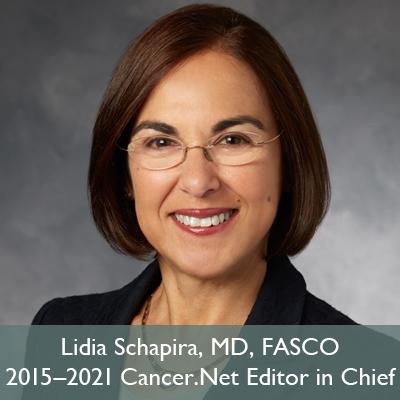
Due to the many advances in cancer treatment, people are increasingly living for a long time after their diagnosis by having ongoing treatment, called extended treatment. For example, a person with chronic myelogenous leukemia may take oral medications for decades and perhaps for the rest of that person’s life. A man with a neuroendocrine tumor recently said that he learned that he could live a reasonably normal life with the right monitoring and right surveillance and by responding to any changes he notices and communicating with his health care team. Certain cancer diagnoses that used to be called “incurable” have now become “treatable,” and this means that more people are facing the challenges of living with a chronic illness. This is increasingly being called “chronic cancer.”
A woman with metastatic breast cancer said it best: “How is it that something as abnormal as chemotherapy is now a routine and ‘normal’ part of my life?” She was in her thirties at the time and struggled to maintain a balance between the “work” of being a patient and the work she loved and found meaningful and fulfilling. She was teaching a college class in anthropology and told me she didn’t tell her students she had cancer because she felt the need to preserve a space in her life that was free of cancer, where she would be unencumbered by disease and treatment. These thoughts likely resonate with other people with cancer and their caregivers, who face similar daily struggles to balance the demands of illness with the need to preserve a sense of normalcy in their lives.
People living with cancer frequently have to make decisions about their treatment. A treatment that worked well for many months or years may stop working. Patients describe feeling torn when faced with these decisions. Do they choose an aggressive treatment that may also cause side effects that worsen quality of life? Or do they choose to focus on maintaining the best possible quality of life?
Making any treatment decisions is stressful and should be done with the support of the patient’s trusted clinicians. Oncologists bring scientific evidence as well as experience and judgment to the table. Patients bring their preferences, goals, and knowledge to bear in making decisions about therapy. My patient who wanted above anything else to be well enough to teach her students chose a treatment plan that preserved her quality of life, even though her family urged her to consider more aggressive and cutting-edge options.
Rapid scientific progress and breakthroughs have brought hope to many people living with cancer. For those having extended treatment, it is important to be prepared to experience frustrations and be equipped to move past the disappointments that can be so frequent in the cancer experience.
For those having extended treatment, it is important to be prepared to experience frustrations and be equipped to move past the disappointments that can be so frequent in the cancer experience.
Let me share some practical tips I learned from wise patients and colleagues:
-
It helps to have a plan. Understanding extended treatment options and actively participating in treatment decisions is helpful. Being prepared to change course can be helpful; for example, if the treatment stops working, there are side effects that force you to stop treatment, or a better option comes along.
-
Communication is key. Having a respectful, collaborative approach to communication with the health care team is crucial. Communication is like playing catch. Both parties must learn to throw and catch, and they need to watch the ball before they catch it. Talking about your concerns as they arise and making sure your health care team hears your concerns is essential to getting the support you need.
-
Managing cancer feels like a job. Having extended treatment is like having another job, but asking for help can make things more bearable and efficient. Sharing tasks and discussing your options with a caregiver or trusted friend can help you find solutions to complex problems.
-
Explore your options. New treatments often become available, either through clinical trials or new standards of care. So it’s important to stay up to date or to discuss the latest advances with oncologists who are actively engaged in this kind of research.
-
Educate yourself about each treatment. The reality of cancer treatments is that they almost always come with side effects. Find out what to expect and how to manage symptoms that may affect your quality of life. Knowing this can help you feel in control, and it may help improve your quality of life.
-
Keep a part of your life “cancer-free.” This is my favorite advice to people living with chronic cancer, which I learned from that smart patient I described above. Keep a part of your life cancer-free. This does not mean that you deny that you still have cancer. Having that safe space away from cancer will give you a release valve from the cancer’s demands on your time and energy.
